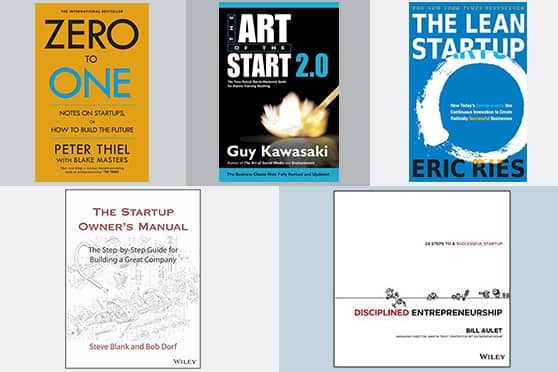5 books to read for advice from entrepreneurs before launching your own startup


If the idea of being an entrepreneur sounds magical, the question to ask yourself is – am I ready to put in the effort it needs? Creativity alone is not enough to make the cut, though a lot of that is needed too. This is one of the points that these five books underscore, along with a ton of tips and guidelines on what to do and how to do it.
Our tip: Read these handbooks and make notes as you toy with the idea of starting your own startup.
The Art of the Start 2.0 by Guy Kawasaki: In this classic entrepreneurship handbook, Silicon Valley venture capitalist Guy Kawasaki comes up with innovative ideas for startups. He outlines how different companies publicise their products, and shares useful tricks, tips and guidelines. The book traces the rise of social media and its role in shifting the focus from traditional investments to new-age trends like crowdfunding.
The Lean Startup by Eric Ries: This book covers the informative side of starting a business, highlighting how to develop new products or services. The focus is on creating businesses by finding innovative solutions. Ries touches upon a variety of startup-related problems, and hence The Lean Startup is a good place to start for anyone looking for inspiration and some hand-holding to take a step towards entrepreneurship.
Disciplined Entrepreneurship: 24 Steps to a Successful Startup by Bill Aulet
A professor at the MIT Sloan School of Management, Bill Aulet is someone that a lot of young entrepreneurs look up to for advice and insights. In this book, Aulet lays out 24 steps for a budding entrepreneur to follow, including how to launch a startup and how to develop an innovative product plan. He also highlights processes to develop efficient products with available resources, with a stern reminder that success doesn’t come overnight.
Zero to One: Notes on Startups, or How to Build a Future by Peter Thiel and Blake Masters:
When someone like Peter Thiel wants to share notes on how to build a future, you’d want to take note. The PayPal co-founder joined hands with venture capitalist Blake Masters to write this book on the possible challenges that may come along the way for new businesses, and how to surmount them. In Zero to One, Thiel and Masters urge new entrepreneurs to take baby steps before thinking big and emphasise the oft-ignored fact that nothing can replace hard work.
The Startup Owner’s Manual: The Step-By-Step Guide for Building a Great Company by Steve Blank and Bob Dorf:
This is a guidebook that underlines the importance of growing and retaining one’s customers. The author duo look at the mechanics of both offline and online businesses, and the steps that an entrepreneur must keep in mind while taking any of these routes. Plus, it is a thorough guide on how to manage funds and come up with innovative customer-centric ideas.